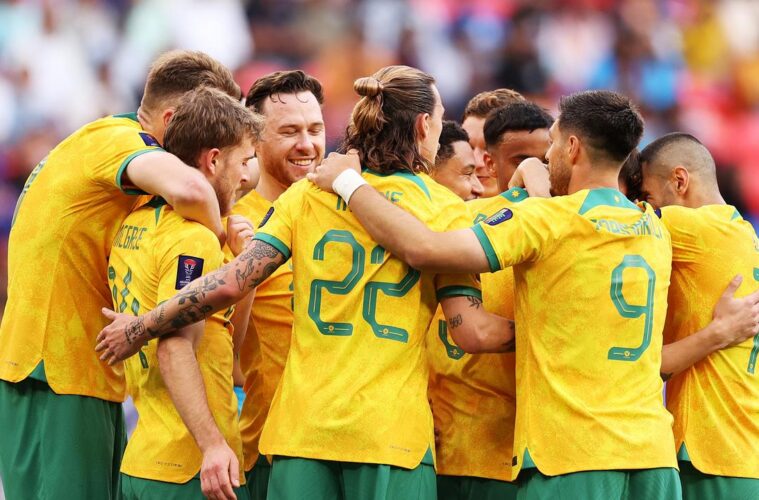The Socceroos banked the three points required of them in their Asian Cup opener against India, but the untidy nature of their first half work has left many questioning whether they possess the creativity to win the tournament.
Though Australia were never threatened defensively, Jackson Irvine’s tenth senior goal (and first at a major tournament) did bring a major sigh of relief on fifty minutes, such was the frustration India’s defensive approach had brought.
From that point it was downhill for Graham Arnold’s side as substituted Riley McGree, Sam Silvera and Jordy Bos all found ways to contribute and sew up the points. Nevertheless, questions remain ahead of their next game against Syria on Thursday.
‘They came up against an opponent that made it very difficult to play through. India’s coach certainly set out the stall to get a point and frustrated Australia, and I’m not sure Australia dealt with that very well’, The Asian Game’s Scott McIntyre told Box2Box.
‘When the Socceroos meet these kinds of teams, do they have the quality to break open the game? There’s no Tommy Rogic, Ajdin Hrustic, and the way they play it looks to me that the two No.8s and the No.10 are all natural No.6s – I don’t know who the game changer is.
‘We have a lot of quick wingers that can take players on and put crosses in, we’ve got tall, physical threats to deal with those situations and convert in the box with the likes of Fornaroli and Duke, but I don’t think the central creativity is there.
Arnold has had great success in maximising FIFA’s eligibility criteria during his tenure and if he was watching on opening night, he may have been longing to insert the creativity of Qatar’s Akram Afif into his midfield.
The Al Saad man dazzled against Lebanon, scoring twice and threatening a handful more, and refreshed the outlook on the team and Qatari football more broadly post the disappointing on-field results of their home World Cup.
‘Akram Hafif has clearly been the standout player so far – he’s like and old-school type from Brazil you might see on a highlights video 40-50 years ago: he’s here on the left, out on the right, dropping deep, the coach has given him a licence to play wherever he wants, he’s such a joy to watch. He’s got the full hair going on and everything!
‘The pressure is off Qatar in a way. They had the ten year build up to the World Cup, their youth development was for so long focussed on that one tournament. The question now is, what do they do?
‘Geopolitically they were the focus of the football world, that’s now shifted across to Saudi Arabia so that’s kind of eased, the pressure of expectation has eased as well. If we think of the scratchy performance of Australia, and scratchy-ish performance from Japan, then Qatar certainly laid down a marker.’
Japan trailed Vietnam momentarily in the first-half of their opener but ultimately won out 4-2 thanks largely to Takumi Minamino, but their goalkeeping stocks present a concern as 21-year old Suzuki Zion coughed up an error that helped Pham Tuan Hai onto the scoresheet.
The match was Suzuki’s fifth international cap, which represents relative experience compared to squadmates Daiya Maekawa (one cap) and Brandon Nozawa (none). McIntyre believes manager Hajime Moriyasu has backed the trio at the expense of better options, and must now make do.
‘This is a real problem. A year ago Suzuki was third choice at Urawa, and for me he’s not an international-level keeper at this point, and neither is Nozawa. Keisuke Osaka of Hiroshima probably would have been first choice but he’s dealing with a knock.
‘There are brilliant keepers in the J1 League that should be in this squad. One of them, Park Il-gyu of Sagan Tosu, is what is referred to here as a Zainichi, an ethnic Korean – he only received his formal Japanese citizenship – despite being born and raised in Japan – a couple of years ago.
‘If they’re going to win the tournament they need to be winning games like they did last night, 4-2 or these kinds of scorelines, because in goal it’s a huge issue for them and something that could hurt them the deeper they go.’

